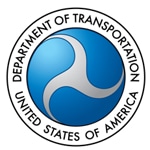
The proposed rulemaking would significantly reduce the paperwork burden associated with hours-of-service recordkeeping for interstate truck and bus drivers – the largest in the federal government following tax-related filings – and improve the quality of logbook data.
“Today’s proposal will improve safety while helping businesses by cutting unnecessary paperwork – exactly the type of government streamlining President Obama called for in his State of the Union address,” said Transportation Secretary Anthony Foxx. “By leveraging innovative technology with Electronic Logging Devices, we have the opportunity to save lives and boost efficiency for both motor carriers and safety inspectors.”
The proposed rule will ultimately reduce hours-of-service violations by making it more difficult for drivers to misrepresent their time on logbooks and avoid detection by FMCSA and law enforcement personnel. Analysis shows it will also help reduce crashes by fatigued drivers and prevent approximately 20 fatalities and 434 injuries each year for an annual safety benefit of $394.8 million.
“By implementing Electronic Logging Devices, we will advance our mission to increase safety and prevent fatigued drivers from getting behind the wheel,” said Federal Motor Carrier Safety Administrator Anne S. Ferro. “With broad support from safety advocates, carriers and members of Congress, we are committed to achieving this important step in the commercial bus and truck industries.”
The Supplemental Notice of Proposed Rulemaking, which was sent to the Federal Register to publish on March 12, supersedes a prior 2011 Notice of Proposed Rulemaking related to electronic on-board recorders. It includes provisions to:
- Respect driver privacy by ensuring that ELD records continue to reside with the motor carriers and drivers. Electronic logs will continue to only be made available to FMCSA personnel or law enforcement during roadside inspections, compliance reviews and post-crash investigations.
- Protect drivers from harassment through an explicit prohibition on harassment by a motor carrier owner towards a driver using information from an ELD. It will also establish a procedure for filing a harassment complaint and creates a maximum civil penalty of up to $11,000 for a motor carrier that engages in harassment of a driver that leads to an hours-of-service violation or the driver operating a vehicle when they are so fatigued or ill it compromises safety. The proposal will also ensure that drivers continue to have access to their own records and require ELDs to include a mute function to protect against disruptions during sleeper berth periods.
- Increase efficiency for law enforcement personnel and inspectors who review driver logbooks by making it more difficult for a driver to cheat when submitting their records of duty status and ensuring the electronic logs can be displayed and reviewed electronically, or printed, with potential violations flagged.
In developing the updated proposal, FMCSA relied on input from its Motor Carrier Safety Advisory Committee, feedback from two public listening sessions and comments filed during an extended period following the 2011 proposed rule. The proposal also incorporates the mandates included in the most recent transportation bill, the Moving Ahead for Progress in the 21st Century (MAP-21) Act, and other statutes.
Impaired driving, including fatigue, was listed as a factor in more than 12 percent of the 129,120 total crashes that involved large trucks or buses in 2012.
New federal regulations designed to improve safety for the motoring public by reducing the risk of truck driver fatigue took effect on July 1, 2013: http://www.fmcsa.dot.gov/about/news/news-releases/2013/fmcsa-40-13.aspx.
On Aug. 1, 2013, the Obama Administration announced another proposal to eliminate a burdensome daily paperwork requirement for professional truck drivers, daily vehicle inspection reports, and reduce costs to the industry by an estimated $1.7 billion annually while maintaining safety standards: http://www.fmcsa.dot.gov/about/news/news-releases/2013/FMCSA-46-13.aspx.
For more information on the Supplemental Notice of Proposed Rulemaking on Electronic Logging Devices, see: www.fmcsa.dot.gov/rules-regulations/administration/rulemakings/rule-programs/rule_making_details.aspx?ruleid=475.

 WASHINGTON – The U.S. Department of Transportation’s Federal Motor Carrier Safety Administration (FMCSA) announced Dec. 12 that 52 bus companies and 340 vehicles were put out of business and removed from the road as a result of Operation Quick Strike, an eight-month intensified effort to shut down unsafe motorcoach companies.
WASHINGTON – The U.S. Department of Transportation’s Federal Motor Carrier Safety Administration (FMCSA) announced Dec. 12 that 52 bus companies and 340 vehicles were put out of business and removed from the road as a result of Operation Quick Strike, an eight-month intensified effort to shut down unsafe motorcoach companies. WASHINGTON – The U.S. Department of Transportation’s Federal Motor Carrier Safety Administration (FMCSA) July 3 announced almost $1 million in new grants to help train veterans and military families for jobs in the transportation industry. The grants were awarded to six colleges across the country as part of the Commercial Motor Vehicle Operator Safety Training (CMVOST) grant program.
WASHINGTON – The U.S. Department of Transportation’s Federal Motor Carrier Safety Administration (FMCSA) July 3 announced almost $1 million in new grants to help train veterans and military families for jobs in the transportation industry. The grants were awarded to six colleges across the country as part of the Commercial Motor Vehicle Operator Safety Training (CMVOST) grant program. The federal government is relaxing a rule for drivers of buses and large trucks who are involved in out-of-state traffic violations. ??
The federal government is relaxing a rule for drivers of buses and large trucks who are involved in out-of-state traffic violations. ??